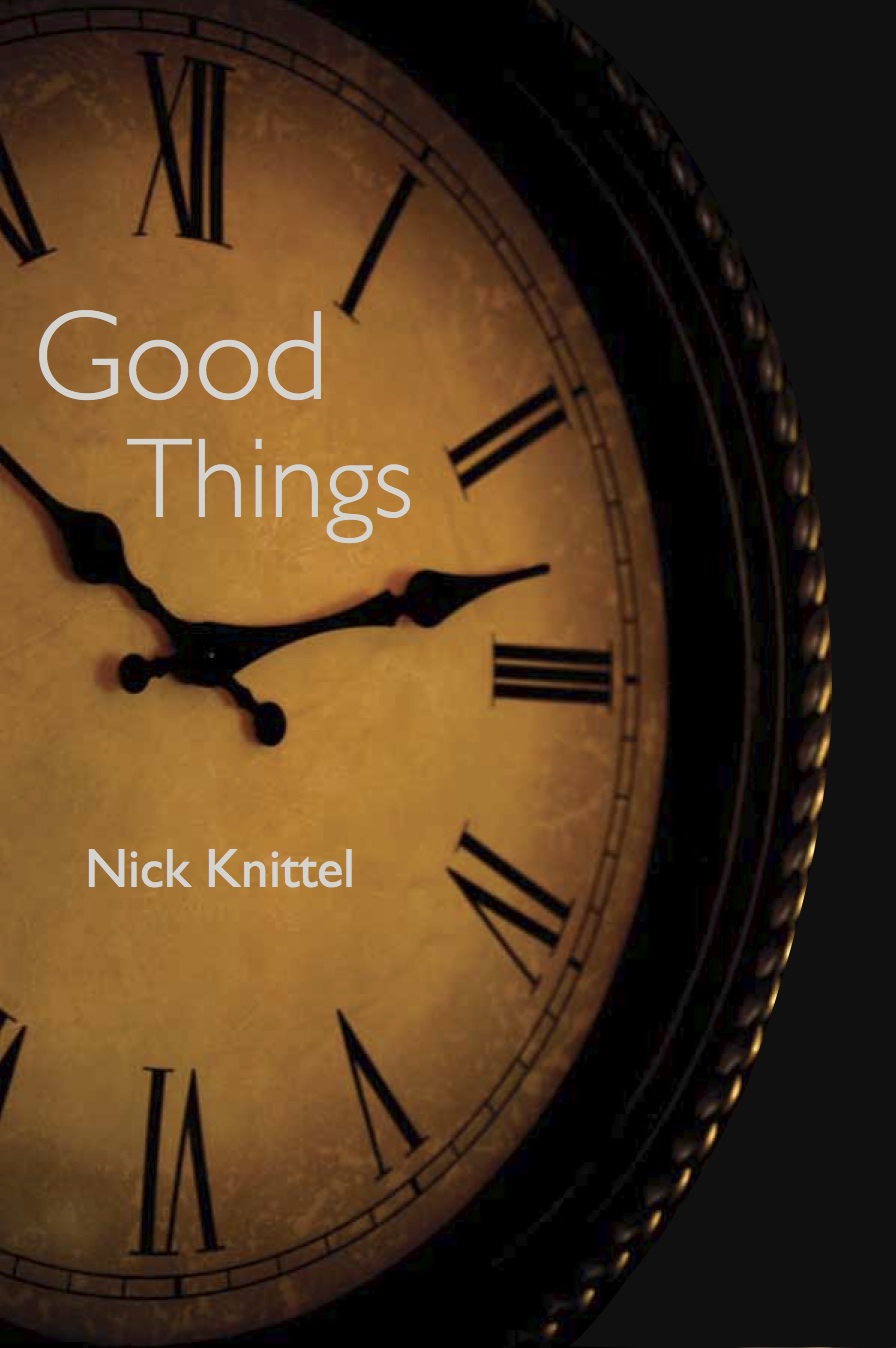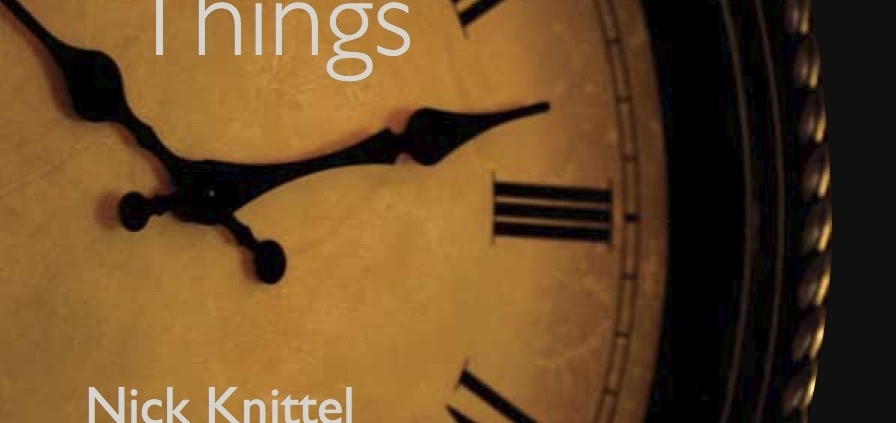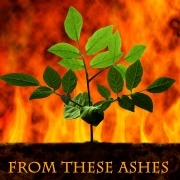 I expected someone older when I met Nick Knittel. It was 2009 and Knittel was part of my second-ever workshop at Fairfield University’s low-residency MFA program. He’d submitted a story about two little boys who’d lost their mother. Because the story featured a compassionate father, that’s kind of who I expected when I checked in on Enders Island.
I expected someone older when I met Nick Knittel. It was 2009 and Knittel was part of my second-ever workshop at Fairfield University’s low-residency MFA program. He’d submitted a story about two little boys who’d lost their mother. Because the story featured a compassionate father, that’s kind of who I expected when I checked in on Enders Island.
Instead I met a young man, just out of undergrad, who could write a mean piece of short fiction.
Two years later, Knittel won our MFA program’s inaugural book prize (judged by poet Charles Simic) for “Good Things,” a collection of deep, quiet short stories. The book was released by New Rivers Press in October 2012. Now that first story I read – the one about the grieving little boys – is available for all to read, along with nine others.
This past Monday, Nick and I caught up to g-chat about “Good Things,” writing and what it’s like to publish for the first time.
Editor’s note: The following interview was conducted over the internet and has been edited. Typos have been corrected, and for the sake of clarity, some sections of the interview have been moved around.
UPDATE: This is a three-part interview. When you get to the end, click the appropriate link to go to page two or page three.
Fact and fiction.
AJ: Nick, I know you from spending about 50 days over the course of two years on an island with you and 100 other writers, but my readers don’t know you… yet. Can you tell them a little bit about yourself, like where you’re from, what you like to write and the name of your book?
Nick: Of course!
Well, I was born and raised in Cincinnati, Ohio, where I lived for most of my life.
Most of my work is based on memories or experiences from my own life, which has resulted in a strange Frankenstein-kind of fusion of fact and fiction, something that I particularly enjoy, but can be kind of hard to write, since it becomes a weird way of exposing yourself as a writer to your audience.
AJ: The work in your book, “Good Things” is really interesting; most of the stories are quiet and deep, sort of Jhumpa Lahiri-ish, but I guess I never would have thought that a lot of them come from your own life. You use so many different kinds of narrators; the work never comes across as autobiographical at all. Can you give me an example of a story that fuses fact and fiction?
Nick: I would hate to say exactly which portions of the stories are directly related to me, but I’ve found that no matter how hard I try, some part of me ends up in the finished product.
AJ: That’s fair.
Nick: Right, and I think you would agree that it’s a trait many writers share. It’s almost impossible to separate one from the other in some cases. But I’ve found that the genesis for a lot of stories come from something that I’ve experienced; a moment with someone, or a phrase that was used, or a quick image that I remember from a kid, it all factors in one way or another. Many of the stories in “Good Things” stemmed from specific images that I had from high school and early college.
AJ: Okay, so you were the first winner of our MFA program’s book prize and Charles Simic judged that prize. One of his comments, I seem to remember, was that you seemed so young to be able to write stories like this. And I know you probably get this a lot, but that was my first impression when I met you at the MFA too. How do you manage to inhabit the wide range of characters you create? How do you get into their heads?
Nick: Funny story.
When I first gave my parents a preliminary copy of the book, my mother pulled me aside after she had read it and asked (very sincerely) “Is everything okay? Are you alright?”
AJ: Wow.
Nick: I thought it was funny at the time, but I’ve noticed that people have also done the same thing when I’ve brought up the book to family and old friends, people who might not have been familiar with the stories.
Because honestly, I’ve had a fine life. Normal parents, normal upbringing, suburbia and everything that entails, but like you mentioned, the stories and people I’m interested in are a little different.
AJ: Would you be able you sum up in a few words, the sort of story, character or struggle that attracts you?
Nick: A lot of the characters in “Good Things” are a little bit broken, a little bit sad, but even though they may be alcoholics or whatever on the outside, there’s a sadness inside that seems universal to me. Everybody wants to feel needed, everybody wants to feel loved, and often those urges are what drive people to do the things they do, whether good or bad.
I think that everybody believes they are capable of being a “good” person, but the struggle to get there can be long and hard, and that’s what interests me the most.
AJ: Was it your idea to name the collection “Good Things?”
Nick: Yes, it was my idea.
One of the main stories is entitled “Good Things” and I felt the struggle of the main character seemed to sum up the general quiet mood of the collection of stories, and also a little bit of its darkness.
The short form.
AJ: Everything I’ve ever read of yours has been short fiction. What about the short form appeals to you?
Nick: I guess I’ve always been really worried that I’ve overstayed a welcome.
AJ: Really?
Nick: Haha, a little bit!
I find that usually when I’m writing, I get a little concerned if I don’t have an exit plan. The story may last, 10, 20, or 30 pages, but I always have an idea for when I can make my escape.
AJ: That’s wise.
Nick: But that being said, there are many stories that don’t benefit from the short form. Sometimes you need to expand and keep creating.
AJ: Have you ever wanted to try a longer piece of work?
Nick: Yes, I’ve actually started something new that doesn’t seem like it can be contained in such a small number of pages. I know you have some experience with novels and novellas, but this is brand new territory for me, and absolutely nerve-wracking.
AJ: You can still have an exit plan for a novel! John Irving can’t even start writing until he knows how it’s going to end. But I digress.
Nick: Oh of course, but I have no idea what my ending is.
Not that I usually have a cut-and-dry exact moment for my stories, but I don’t even have a feeling for this, which is really weird.
Next section: Working with a student press and being published






What a wonderful interview, very insightful and wide ranging. I loved reading this! Since I know Nick from the program, his depth and seriously sincere writing was not a shock to me. I didn’t want to stop reading his fabulous stories. They were just too good to put down. His voice is unique and serious, similar to Denis Johnson, but much more broad and wide ranging in terms of subject matter and again, depth of character.
Nick rocks, his collection rocks – I want to read more – and of course, A.J. rocks.